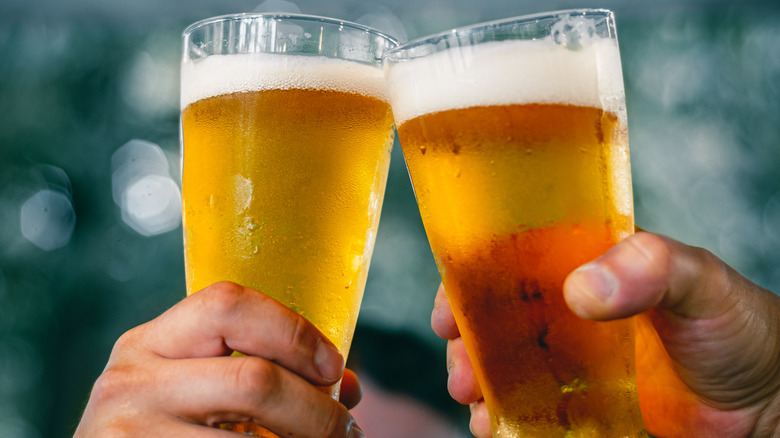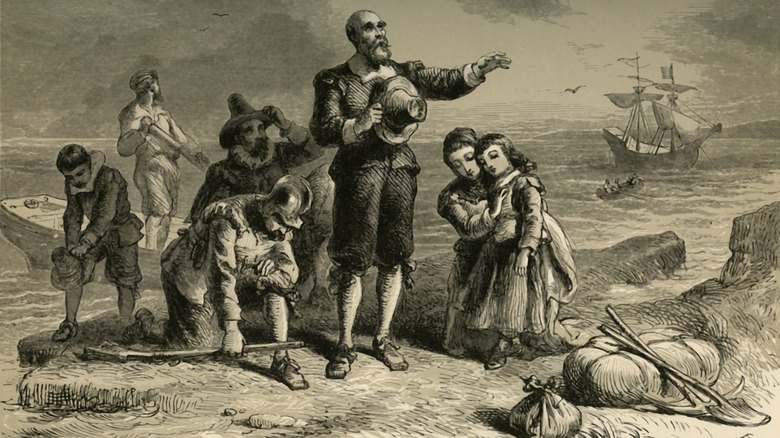Why Beer Was The Reason The Pilgrims Landed On Cape Cod
The Pilgrims, the men and women who fled religious persecution in Europe to start a new life in the "New World," are often seen as a dour, serious, and fussy bunch who loved religion, religion, and more religion, and had little tolerance for much else. You may also think that the Pilgrims were a gang of teetotalers who avoided alcohol at all costs, but in fact, that was not true at all. In those days, almost everybody in England consumed beer throughout the day, according to Lancaster Brewery, at least in part because it contained lots of calories. Considering the sorry state of the diet of the average English worker at the time, a cheap source of "nutrition," such as it was, was indispensable.
Further, bringing fresh water to drink on an ocean voyage — from England to the New World — was a fool's game, considering that it could easily be polluted by seawater and become undrinkable. Instead, seafarers brought beer, and lots of it, at once solving the problem of giving their passengers calories and giving them unpolluted water to drink.
Unfortunately for the Pilgrims, a beer shortage set into motion a series of events that ended with over half of the passengers on the Mayflower dying.
Beer rations were running low
Though the Mayflower, with the Pilgrims on it, landed in Massachusetts, which ultimately led to the formation of the new United States of America, that was not its original destination. As Serious Eats notes, the vessel was actually headed toward Virginia, which made considerably more sense than Massachusetts. The climate was and is much more forgiving, and there was already an established colony there. However, the ship had gotten off-course by the time its crew first sighted land, and the beer rations were running low. The captain, Christopher Jones, knew that his sailors would need the beer for the return journey home the next spring, and he ordered the colonists off the ship and into the cold and unforgiving reality that was Massachusetts in the winter. This upset the passengers, who were distrustful of fresh water, months away from being able to establish their own brewery, and who were quite salty about being made to give up their rations in favor of the sailors. Indeed, within a few weeks most of the passengers had taken refuge back aboard the ship, and the captain reluctantly agreed to part with some of the beer. Regardless, at least half of the original colonists died that first winter.

